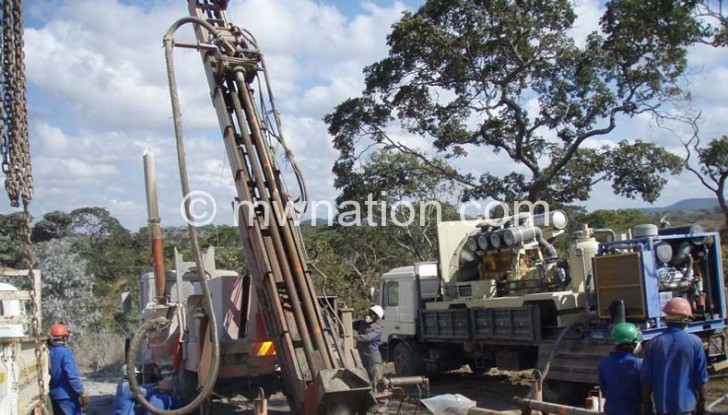Mining revenue down
Revenue generated from the mining sector between July 2015 and April 2016 dropped by 90.5 percent to K161 million ($223 301) from K1.7 billion ($2.4 million) compared to the same period the year before.
Ministry of Natural Resources, Energy and Mining has attributed the drop mainly to the suspension of production at Kayerekera Uranium Mine (KM) in Karonga.
KM was put on care and maintenance since February 2014 due to a drop in the price of uranium on global market to around $35 a pound.
Mining experts have said although Malawi’s mining sector has potential to grow, the sector is still riddled with too many flaws in the legal framework that are creating the leakage of potential tax collection.
Ministry of Natural Resources, Energy and Mining spokesperson responsible for mining issues Levi Undi said in an interview on Tuesday that the decline in revenue is due to the suspension of production at KM, which was a major contributor to mining revenue through royalties and other fees.

At the height of production at KM, the mining sector was contributing about seven percent to the gross domestic product (GDP), the broad measure of economic output.
Said Undi: “We were getting a lot of money from Kayerekera and since its suspension, we have not been collecting as much revenue from mining activities.”
He said the general downturn of the mining industry globally has also negatively affected local revenue collection as mining companies have been banking on improved metal prices which never happened, thereby affecting revenue in the sector.
In the year under review, Malawi produced 58 774 metric tonnes of coal valued at K791.16 million while cement production was at 65 560 tonnes, raking in t K71.14 million.
However, coal exports to Mbeya Cement Company and Gypsum Company in Tanzania raised K85 million in export revenue.
Said the report: “The mining sector in the country continues to experience reduced investment and production as a result of the slump in global mineral prices.
“The coal and cement sub-sectors suffered a lot of competition from cheap imports from the neighbouring countries.”
As a result, some of the coal mines shut down or scaled down their production.
On the other hand, production in the cement sub-sector increased despite the competition, according to the report.
Recently, local cement companies complained that imported cement is posing a threat to their companies’ survival.
In an earlier interview, LafargeHolcim Malawi board chairperson Symon Msefula said while the company welcomes competition, livelihoods and future of more than 5 000 household is threatened due to imports which have created uneven playing field.





